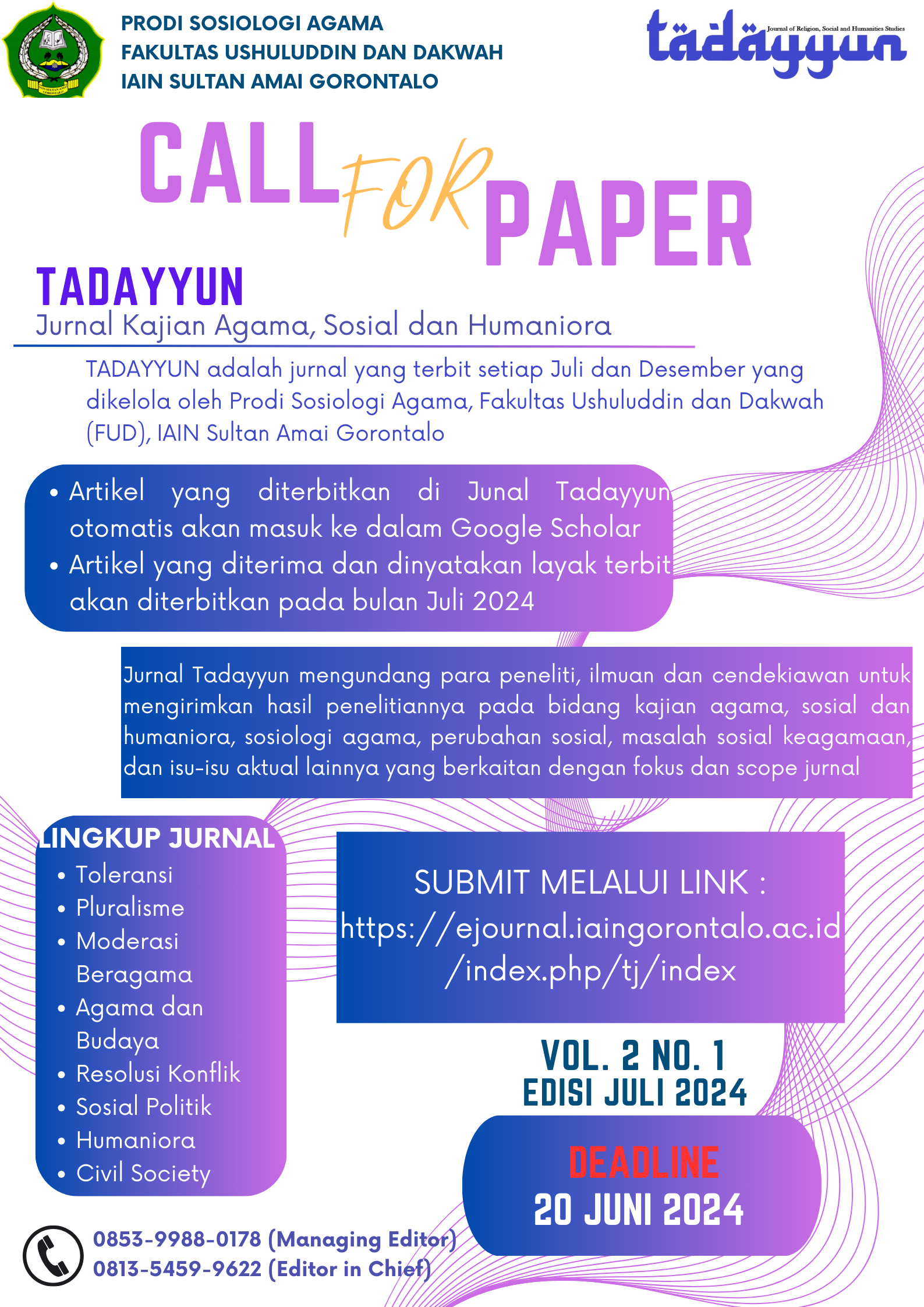RITUAL MANDI PENOLAK BALA: Fungsi Sosial Budaya Mandi Safar di Desa Biniha Kabupaten Bolaang Mongondow Selatan Provinsi Sulawesi Utara
Keywords:
Mandi Safar, Ritual Tolak Bala, Desa BinihaAbstract
This paper examines the social function of the safar bathing tradition in Biniha Village, South Bolaang Mongondow Regency, North Sulawesi Province. This type of research is qualitative using a sociocultural and phenomenological approach. The technique used in this research is observation, interview and documentation. The results showed that 1) The process of carrying out a safar bath, the community together went to a bathing place known as a river or estuary, religious leaders and traditional leaders while bringing leaves that were written with the intention of taking a bath, the leaves were inserted into a yellow bamboo which was already filled with water. After that, bathe under the leaves while being splashed with water, namely, religious leaders and traditional leaders take a bath first, then the community follows, after bathing the community prays, the prayer is led by the priest. 2) The socio-cultural function consists of 4 stages, namely the function of behavior, the function of customs, the function of sociology and the function of cultural values. The tradition which is carried out by means of a bathing event is to reject reinforcements, and to maintain the culture so that it still survives and remains strong at this time of solidarity and cultural values.









